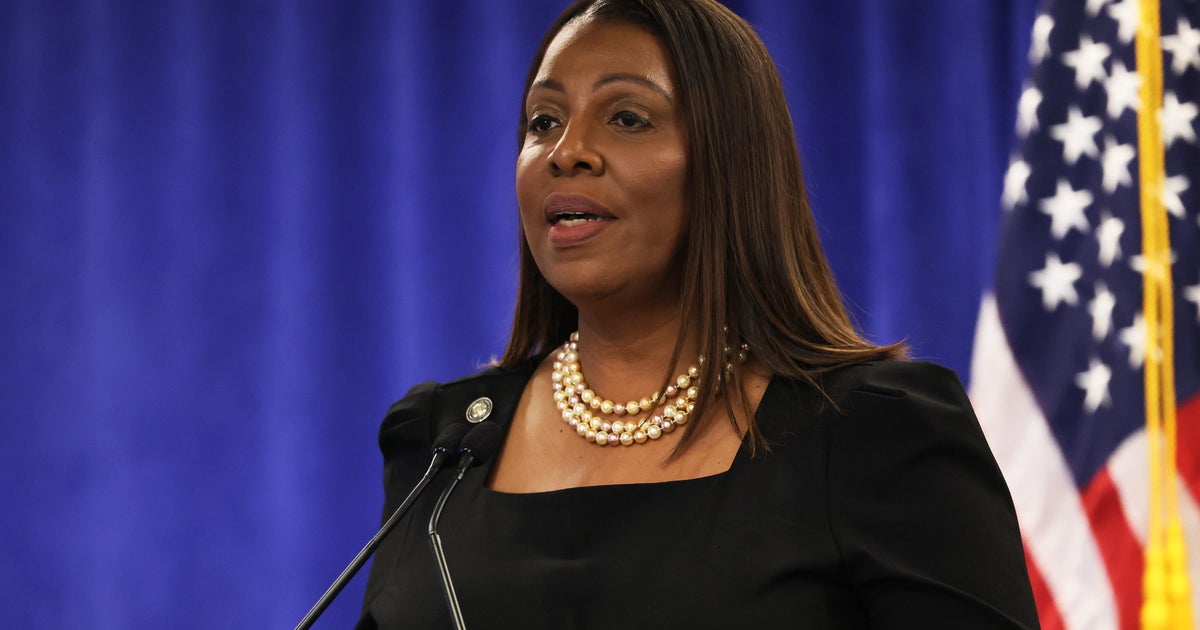Attorney General Jeff Sessions Calls For Resignations Of 46 US Attorneys
WASHINGTON (CBSNewYork/AP) -- Attorney General Jeff Sessions is asking for the resignations of 46 United States attorneys who were appointed during prior presidential administrations, the Justice Department said Friday.
Many of the federal prosecutors who were nominated by former President Barack Obama have already left their positions, but the nearly four dozen who stayed on in the first weeks of the Trump administration have been asked to leave "in order to ensure a uniform transition," Justice Department spokeswoman Sarah Isgur Flores said.
"Until the new U.S. attorneys are confirmed, the dedicated career prosecutors in our U.S. attorney's offices will continue the great work of the department in investigating, prosecuting and deterring the most violent offenders," she said in a statement.
It is customary for the country's 93 U.S. attorneys to leave their positions once a new president is in office, but the departures are not automatic. One U.S. attorney appointed by President George W. Bush, Rod Rosenstein of Maryland, remained on the job for the entire Obama administration and is the current nominee for deputy attorney general.
"It's not particularly unusual," Jennifer Rodgers, a former federal prosecutor who teaches at Columbia Law School, told WCBS 880's Peter Haskell. "If the president started nominating people who didn't have prosecutorial experience, I would certainly find that troubling."
Rodgers said it's critical to choose people who have the independence to pursue justice.
It was not immediately clear when each of the prosecutors would resign, or if they all actually will. And the request for resignations doesn't necessarily mean Sessions plans to accept all of them.
Preet Bharara, U.S. Attorney for the Southern District of New York, declined to comment Friday after he was included on the list of prosecutors asked to submit resignation letters, the Associated Press reported.
It was not immediately clear if Preet Bharara, the top prosecutor in Manhattan, must resign. He met in November with Trump and was asked to stay on after Trump called Senate Minority Leader Charles Schumer (D-N.Y.) and told him he wanted to keep Bharara in the post.
In a statement late Friday, Schumer said he was "troubled to learn of reports of requests for resignations from the remaining U.S. attorneys, particularly that of Preet Bharara.''
"While it's true that presidents from both parties made their own choices for U.S. attorney positions across the country, they have always done so in an orderly fashion that doesn't put ongoing investigations at risk. They ask for letters of resignation but the attorneys are allowed to stay on the job until their successor is confirmed,'' the senator said.
Schumer said that by requesting immediate resignations, Trump was ``interrupting ongoing cases and investigations and hindering the administration of justice.''
Bharara has made public corruption and insider trading an emphasis since President Barack Obama appointed him midway through 2009.
With a quick wit and a steady stream of public appearances, Bharara has been one of the more charismatic prosecutors to lead one of the busiest offices of federal prosecutors in the country.
The prosecutor was once lauded on the cover of Time magazine as the man who is ``busting Wall Street.'' More recently, he's successfully prosecuted over a dozen state officeholders from both political parties.
Meanwhile, U.S. Attorney for the Eastern District of New York Robert Capers tendered his resignation Friday evening, saying, "It has been my greatest honor to serve my country, New York City and the people of this district for almost 14 years, with the last 17 months serving as United States Attorney."
Connecticut's U.S. Attorney Deirdre Daly also submitted her resignation, saying, "It has been a great honor and privilege to serve as Connecticut's United States Attorney. In fact, it has been a gift of a lifetime."
"I am extremely proud of the tremendous accomplishments of the men and women of this office during my tenure," her statement continued. "I applaud their tireless work holding our most violent offenders accountable, protecting our children and our environment, standing up for our most vulnerable victims, and not hesitating to stand up to the powerful."
A short time later, New Jersey's U.S. Attorney Paul Fishman tendered his resignation as well.
"It has been the greatest professional experience that I can possibly imagine to have served in this office for the past seven-and-a-half years. Having spent so much of my career working to protect the interests of the people of New Jersey, I can think of no greater form of public service," he said in a statement.
A Justice Department spokesman, Peter Carr, said that President Donald Trump has asked Rosenstein and Acting Deputy Attorney General Dana Boente to stay on.
"The president called Dana Boente and Rod Rosenstein tonight to inform them that he has declined to accept their resignation, and they will remain in their current positions," Carr said in an email late Friday.
During the Clinton administration, former Attorney General Janet Reno sought the resignations of the U.S. attorneys appointed by former President George H.W. Bush in 1993, when Sessions was the U.S. attorney for the Southern District of Alabama.
Tim Purdon, a former U.S. attorney for North Dakota in the Obama administration, recalled that Obama permitted Bush appointees to remain on until their successors had been appointed and confirmed.
"The way the Obama administration handled it was appropriate and respectful and classy," he said. "This saddens me because many of these people are great public servants and now they are being asked to leave."
U.S. attorneys are federal prosecutors who are nominated by the president, generally upon the recommendation of a home-state senator, and are responsible for prosecuting federal crimes in the territories they oversee. They report to Justice Department leadership in Washington, and their priorities are expected to be in line with those of the attorney general.
Sessions took perhaps a veiled swipe at their work in a memo earlier this week, saying that prosecutions for violent crime have been on the decline even as the number of murders has gone up. The demand for resignations seems a way to ensure he will have a team of new federal prosecutors more likely to share his agenda.
(© Copyright 2017 CBS Broadcasting Inc. All Rights Reserved. The Associated Press contributed to this report.)



